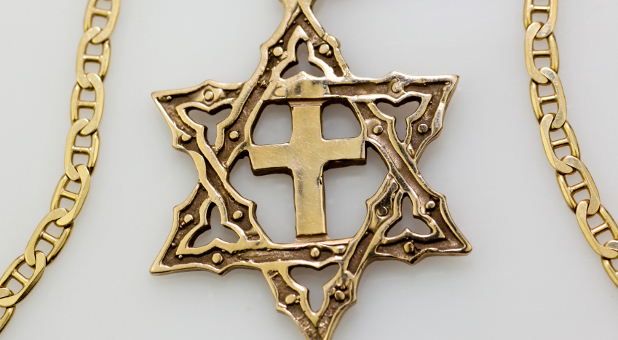Christians Included, Israel Honors All With Respect and Liberty
For a short time after Pentecost, the church at Jerusalem was the principal assembly of Nazarenes, or followers of The Way as they were called. James (Ya’akov in Hebrew) the brother of Jesus (Yeshua in Hebrew), was the leader until execution around 45 A.D.
Peter and Paul accepted the leadership of this assembly and a critical conference was held that cleared the way for non-Jews to enter the community. But when the disciples were expelled from teaching their disciples on the grounds of the Temple, rapid and fortunate change occurred. The revolt against the Romans that the Sanhedrin and Temple party had hoped for was rising.
The Messiah movement that they hoped would die out with Jesus’ execution was not the type of political action they wanted. The Temple had become more political than faithful and, even though there was a sense of belief in the kingdom offered by Jesus, the positions and advantages the Chief Priests held were too strong for them to surrender. They sought a return to the kingdom of David’s House.
By 64 A.D., the followers of the Nazarene were gone from Jerusalem. By 66, the revolt was in force and Rome sent two legions to put it down. Judea was a focal point in the Empire’s administration. It occupied the land route to Egypt and Libya and, when the Mediterranean was in winter season, the only trade and march routes went through that troublesome Province.
The failed revolt, the destruction of the Temple and mass of deaths from military action—perhaps 2 million—had long-lasting effects on what became Rabbinical Judaism. The synagogue became the house of prayer and the rabbi was now a more identifiable leader than a teacher and scholar who hosted his own disciples. The Apostles, especially Paul, sought out synagogues in their journeys and taught there.
Their teachings brought non-Jews into the assembly in the known world. But a number of followers stayed in Judea and their numbers grew.
The acceptance and acknowledgement by Constantine as a tolerated religion and the eventual the adoption as official State religion of both Western and Eastern Empires solidified Jerusalem as the religious capital. The Emperor’s mother, Helena, journeyed to Judea and through many means declared she had identified the places associated with the Crucifixion and Resurrection. Roman-style basilicas were built and pilgrimages began almost immediately.
Events like the Persian conquest, then brief reconquest by the Byzantine Eastern Emperor and ultimate Muslim conquest and occupation seriously affected Christians in Judea.
Depending on the attitudes of the rulers, Jews and Christians were tolerated and taxed or discriminated against, singly or as groups. Still a presence was maintained by both.
The failure of Latin kingdoms of the Crusades ended any attempt to make a Christian nation of what was Judea, but today a thriving and diverse community of Christians lives in Israel. Israel is the only Middle Eastern nation that has laws that declare freedom of religion and Christians in Israel are represented in several groups.
Christian Arabs follow Orthodox rites as well as Syrian (Maronite). Although the Liturgical language was originally Greek, rituals in Arabic were added to accommodate those who did not know Greek. Russian Orthodox followers also are a significant presence. Roman Catholic groups also are visible and administer several Holy Places.
In fairly recent years Protestant groups have established a presence and have instituted significant charitable and public support for Israel through the efforts of CUFI and the International Christian. These groups foster cooperative and positive relationships with the State of Israel and Israelis of all faiths.
AIPAC also is an incredibly effective collaboration of church and synagogue that mutually supports Israel.
Why do these Christians support Israel? Israel is the location of Biblical prophecy. It is promised in Scripture as the home for Abraham and his descendants of whom we are grafted in. No other place is mentioned or referred to as a replacement and the Covenant has been sealed by the Messiah’s blood.
When the Messiah ascended to heaven from the Mount Of Olives, two angels startled the already startled and amazed Disciples. The angels asked why they were standing there looking up to the heavens. The Man who had just risen to heaven will return “in like manner” to this place.
The Mount of Olives is biblical “high ground.” It is an ancient military practice to take and hold the high ground. The Mount is In Israel and we and the people of Israel are duty bound to hold it until He returns. To not support and stand with Israel is nonbiblical.
Tom Brennan has worked in quite a few professions. Born in Lynn, Massachusetts, he’s worked as a museum curator, archivist and graphics curator, library administrator, small business owner, animal care worker, sheriff’s deputy, rancher and farmer and author and researcher and NewsBlogger. He plans to volunteer for Sar-El next year and see Israel from the ground up. When he’s not digging into news, he works with Arabian horses and other breeds in Boise, Idaho.













